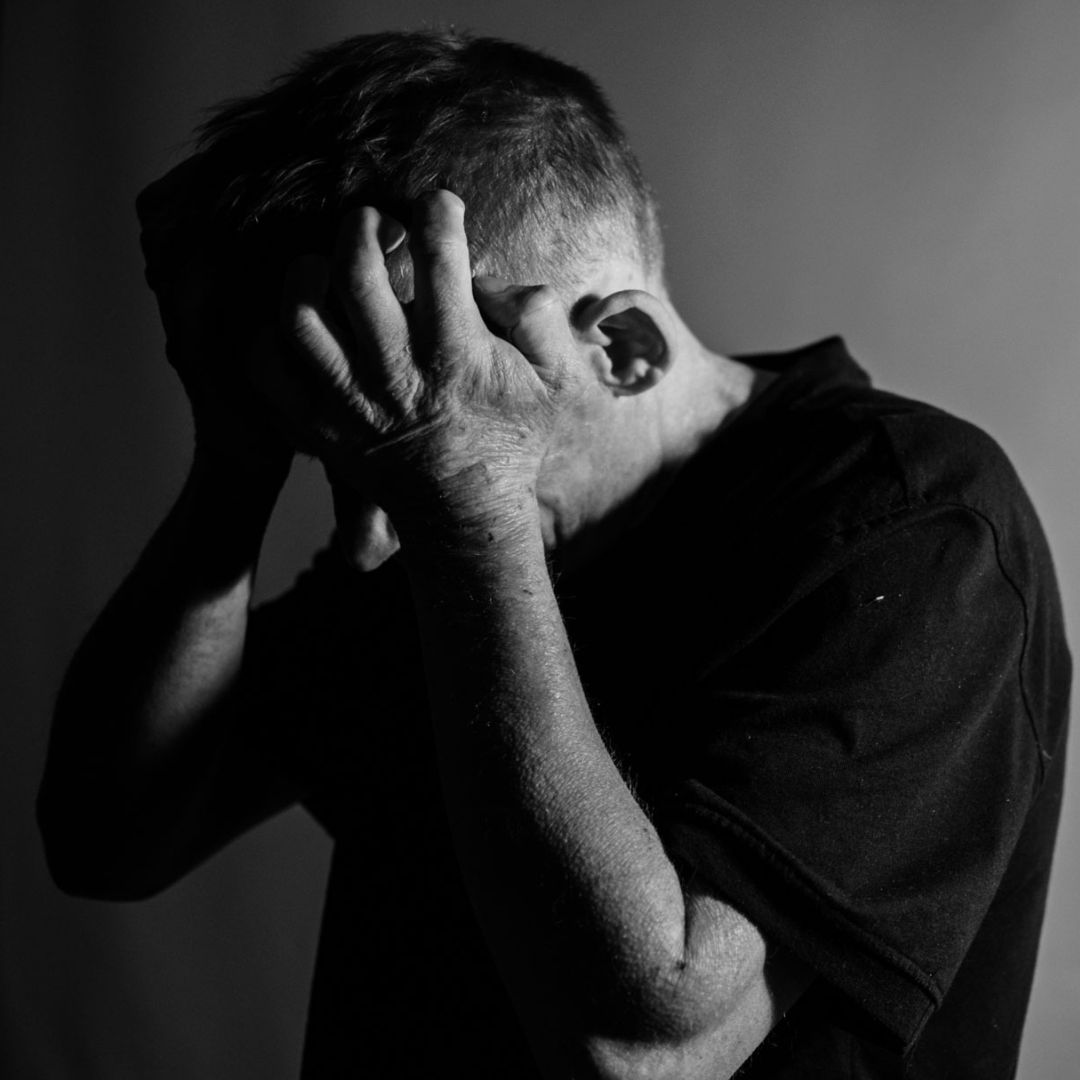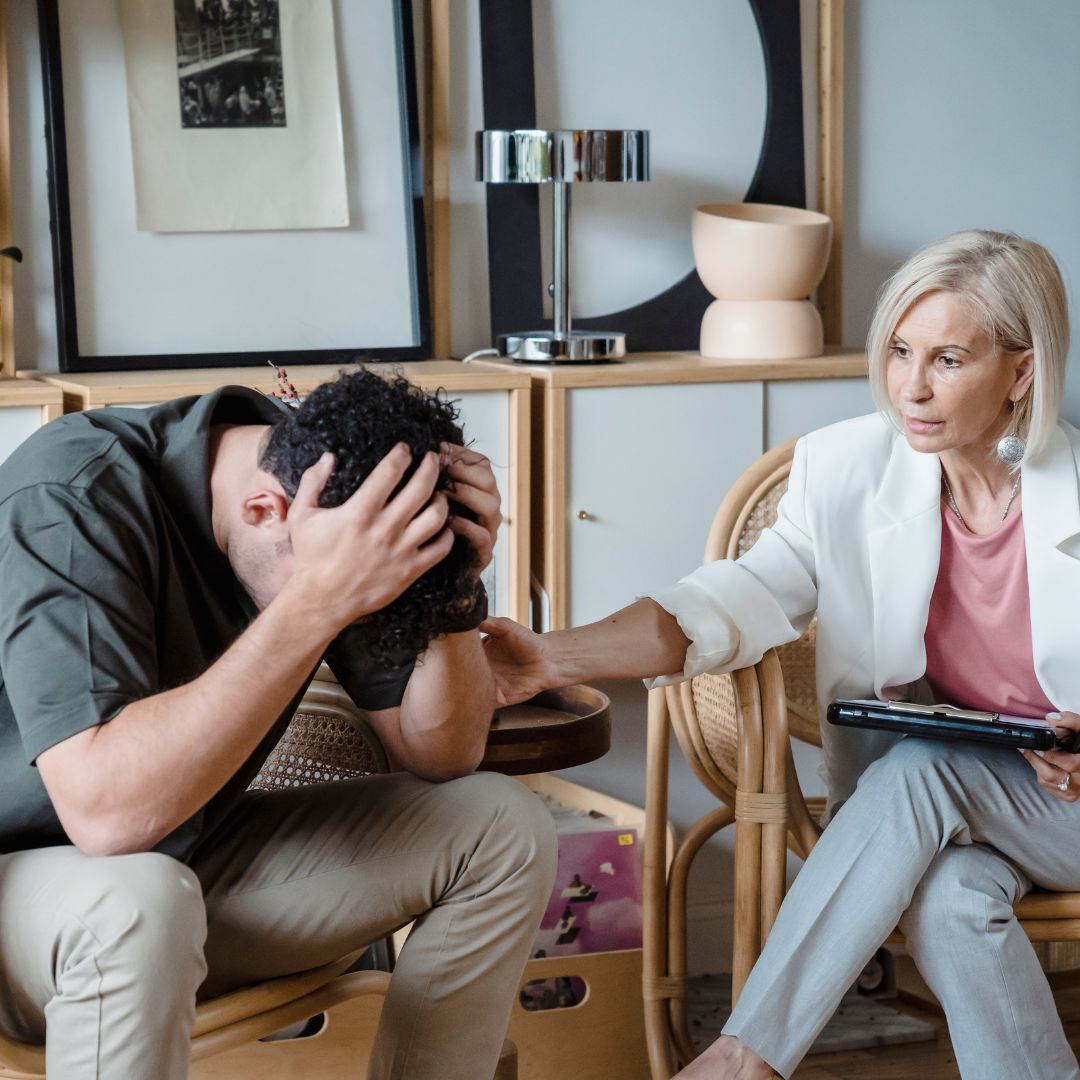Induja holds a Master’s degree in Clinical Psychology and brings a strong academic foundation to her work as a mental health content writer. With deep expertise in psychological concepts and evidence-based practices, she creates thoughtful, accurate, and empathetic content aimed at promoting mental well-being
25 Jul 25 08:30 am
Breaking Through the Fog - How Therapy Transforms the Battle Against Depression
Discover how therapy helps individuals overcome depression with emotional clarity, scientific insights, and practical support. Learn about top therapists, online treatment options in India, and how counselling can help manage anxiety and reclaim hope.

****
Introduction
“You don’t have to control your thoughts. You just have to stop letting them control you.”
– Dan Millman
A study showed that 62% of those who received therapy no longer met the criteria for major depressive disorder, compared to approximately 43% in care-as-usual or control groups—highlighting a significant 19% higher recovery rate with psychotherapy.
Depression can feel like a relentless fog—an invisible weight making daily life feel like an uphill battle. It dulls the senses, isolates emotions, and casts a shadow over joy. But here’s the empowering truth: depression is not the end of your story. With the right guidance and support—especially through therapy—a brighter, more resilient version of life is entirely possible.
In this article, we explore how **t**herapy for depression in India is offering people a lifeline. Whether you're considering online counselling for depression, searching for *depression support in India*, or are a mental health professional looking for insight, this article offers both scientific grounding and emotional truth.
Why Therapy is a Lifeline for Depression: The Big Picture
Therapy isn’t just about “talking.” It’s a scientifically backed, emotionally empowering, and deeply personal process that helps individuals regain control over their mental health. Here’s how therapy functions as a lifeline when battling depression:
a) Therapy Rewires Thought Patterns
Studies in cognitive-behavioural therapy (CBT) show that therapy helps patients identify and challenge negative thought patterns that fuel depression. With guided interventions, people learn to replace self-critical beliefs with healthier, more accurate perspectives.
- A 2022 meta-analysis found that CBT can be as effective as antidepressants for many individuals with mild to moderate depression.
- Therapy helps the brain “rewire” itself, building new neural pathways that support resilience and self-compassion.
b) Therapy Equips You with Emotional Regulation Tools
Depression isn’t just sadness; it’s a cycle of emotional dysregulation. Therapy introduces practical tools to manage this overwhelm:
- Grounding techniques and breathing exercises
- Mindfulness-based awareness
- Thought-stopping and emotion labelling
- Reflective journaling
These strategies are especially important for people accessing online counselling for depression, as they can begin practicing these tools in real-time, even in the comfort of their home.
c) Therapy Creates a Safe and Judgment-Free Space
In a society where mental health is still often misunderstood, therapy offers refuge.
- The therapeutic relationship becomes a secure base for self-exploration and healing.
- This is especially powerful in India, where stigma still prevents many from opening up to family or friends.
- For many, therapy is the first space where they are truly heard, seen, and accepted.
- In fact, seventeen randomized controlled trials (RCTs) involving 1,109 subjects found that behavioural therapies produced effect sizes comparable to Cognitive Behavioural Therapy (CBT), and were more effective than control groups, brief psychotherapies, and supportive therapy—highlighting the clinical strength of structured, empathetic therapeutic spaces.

How to Actively Use Therapy to Overcome Depression
Engaging in therapy is an act of courage. But to truly benefit from it, consistency and intentionality are key. Here are some practical steps to maximize your therapeutic journey:
a) Commit to the Process Wholeheartedly
Therapy requires persistence. Like physical rehab, the results are gradual but lasting.
- Stay consistent: Skipping sessions can interrupt momentum.
- Engage deeply: Do your journaling, mindfulness, or reflection exercises.
- Be vulnerable: The more open you are, the more therapy can meet you where you are.
b) Find the Right Therapist for You
The success of therapy often hinges on the client-therapist dynamic.
- Give yourself permission to try a few sessions with different therapists.
- Consider specializations: trauma-informed therapy, psychodynamic, CBT, or even support programs for depression if your depression affects daily functioning.
- Use platforms where you can choose among the best mental health experts with verified credentials and reviews.
c) Support Therapy with Small Daily Shifts
Therapy doesn’t exist in a vacuum. Complement it with lifestyle choices that support emotional well-being.
- Nutrition: Omega-3s, whole grains, and leafy greens nourish your brain.
- Movement: Even a 15-minute walk can shift your mood.
- Sleep: Commit to sleep hygiene habits like avoiding screens before bed.
- Digital detox: Reducing doomscrolling and social comparison helps lighten the emotional load.
The Inner Healing: What Therapy Teaches About You
Therapy doesn’t just help you survive depression; it helps you understand yourself more deeply. It transforms your relationship with pain, shame, and vulnerability.
a) You Are Not Broken
One of therapy’s most profound gifts is this realization: You are not broken. You are responding to pain with the resources you have.
- This shift from "What’s wrong with me?" to "What happened to me?" brings incredible emotional relief.
- Depression is often not a weakness, but a survival response to prolonged stress, loss, or unmet needs.
b) Emotional Maturity Begins to Bloom
As therapy progresses, you begin recognizing the origin of your emotions and responding instead of reacting.
- You learn that burnout isn’t laziness; it’s your nervous system demanding rest.
- Grief, anger, and numbness are unpacked and understood.
- This emotional awareness enriches every area of your life—from relationships to career, even parenting.
c) Therapy
Research shows that beyond symptom reduction, therapy enhances your daily functioning, interpersonal relationships, emotional regulation, and overall engagement with life. It helps you reconnect with yourself and others in a way that fosters sustainable well-being, not just relief.
d) Hope and Imagination Return
When depression begins to lift, the colours of life return - slowly, but vividly.
- Clients often rediscover abandoned dreams: art, travel, love, writing.
- Therapy empowers you to trust your resilience: "I’ve survived this before. I can do it again."
- Even if depression revisits, you now have a toolkit to navigate it.
Conclusion
Therapy is more than a solution; it’s a transformation. It acts as a mirror, a guide, and a light in the dark. For those navigating the shadowlands of depression, therapy offers evidence-based healing and soulful connection.
Whether you’re exploring therapy for depression in India, in need of online counselling for depression, or searching for reliable depression support in India, know this: help is real, healing is possible, and your story isn’t over.
FAQs
What kind of therapy is most effective for depression?
Cognitive-behavioural therapy (CBT) and interpersonal therapy (IPT) are among the most effective. Some may benefit more from trauma-focused or psychodynamic therapy, or Occupational Therapy if daily function is affected.
Is online therapy effective for treating depression?
Absolutely. Research shows that online counselling for depression can be just as effective as in-person therapy, especially when provided through secure, structured platforms.
How long does therapy take to show results?
Some clients feel improvement within 6–8 sessions, while others require longer-term support. Consistency and finding the right therapist are key.
What are the signs that I should start therapy?
If you're feeling persistently sad, numb, unmotivated, or disconnected—especially if it's affecting your relationships or work—therapy can help.
Where can I find reliable depression support in India?
Look for platforms like LifeHetu, where you can connect with Top therapists and explore personalised support suited to your emotional needs.
Sources
- The effects of psychotherapies for major depression in adults on remission, recovery, and improvement - The effects of psychotherapies for major depression in adults on remission, recovery, and improvement: a meta-analysis - PubMed
- Cognitive behaviour therapy vs. control conditions, other psychotherapies, pharmacotherapies, and combined treatment for depression -https://pubmed.ncbi.nlm.nih.gov/36640411/
- A meta-analysis of randomized trials of behavioural treatment of depression - https://pubmed.ncbi.nlm.nih.gov/17903337/
Related Reads. Similar Blogs to Check Out.


